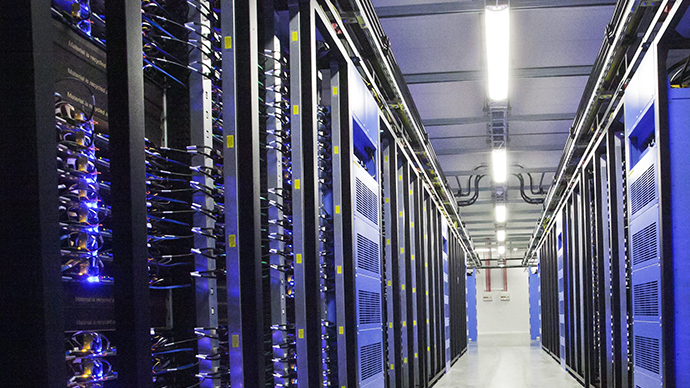Decentralization of the Internet ‘can be used for closing down borders’

Creating alternatives to the existing cyberspace, its decentralization, could be used for closing down borders around some kind of national Internet, Jérémie Zimmerman from the Internet Liberties and Digital Rights advocacy group warns.
A South American nation -
Brazil - has been calling for a new, secure cyberspace to be
created, in response to the NSA scandal.
That idea has received the backing of the other BRICS nations - Russia, India, China, and South Africa, who are now considering laying a vast network of data cables, immune to NSA snooping technology.
RT: So, it sounds like quite a costly idea?
Jérémie Zimmerman: It sounds costly, but it’s probably worth it. The more cables there would be, the more routes for information to go through the Internet, the better the communication will be overall. If more people invest in more cables, then it means more Internet.
RT: What are they going to do, are they going to have their own fiber optic cables, etc? How can they be sure that the NSA won’t hack into them anyway?
JZ: Well, you can never be sure. But one thing is for sure: when the cable ends up in the US, then NSA has full access. If the cable ends up somewhere else, then it’s yours to secure its access. Of course, there are questions: the hardware that will be used on both ends of those cables is one point for interception, and of course if those cables are used to make information transit to websites such as Google or Facebook, all the websites in which NSA has full access, it won’t solve per se the question of privacy invasion on the massive scale by the NSA.
RT: It comes to something, looking to the future when we’ve got Internet dedicated to various people’s political outlooks. It’s kind of scary, well, I mean, the whole point of the Internet is that it’s freedom for everyone, it’s a scary thought if it goes down this path?
JZ: It’s not that scary because Internet relies on decentralization, so the more cables, the more routes, the more options there will be for data to transit through the Internet, the better it will be. Of course, this decentralization could be used for nationalization, could be used for closing down borders around some kind of national Internet, and we see that in many countries today, such as China, Iran, even in Russia. So the question is: how much [longer] will we tolerate decentralization and with which guarantees will [they ensure] respect for human rights. Per se, laying down the new fiber optics doesn’t look like a risk for fundamental freedoms.
RT: Could governments use them for their own games, though, in some shape or form?
JZ: Governments don’t need new transcontinental cables to play their own game. All they need is to have access to companies, who locally run access to the Internet or the Internet service. So we see countries such as China, Iran, or Russia, or others, pressure operators locally to operate censorship. So they don’t need transcontinental links to do so.
RT: But laying these cables would be hugely costly – so isn’t there any simpler way to protect people’s data from the prying eyes of the NSA?
JZ: Taking back control of a communication infrastructure isn’t something silly. It really makes sense. We can think of a kind of digital sovereignty that countries should be free to apply, from cables to other key infrastructure. Of course it is not enough. I hope that those governments, along with laying down new cables, will, for instance, invest in new industrial policies, where they would foster the development of free liberal software and decentralized services, and then to an encryption to put back in the hands of their citizens ways of gaining back control over technology. With all new cables in the world, if people keep believing that they can trust Google, Facebook, Apple and Microsoft – then they’ll send all there is to the NSA. So of course it has to be a broader set of technological and political solutions, and also social solutions, to make citizens around the world understand that we must take back control of the infrastructure, we must take back control of communications, of our personal data. If we don’t control the machines, then the machines will control us.
The statements, views and opinions expressed in this column are solely those of the author and do not necessarily represent those of RT.
The statements, views and opinions expressed in this column are solely those of the author and do not necessarily represent those of RT.












